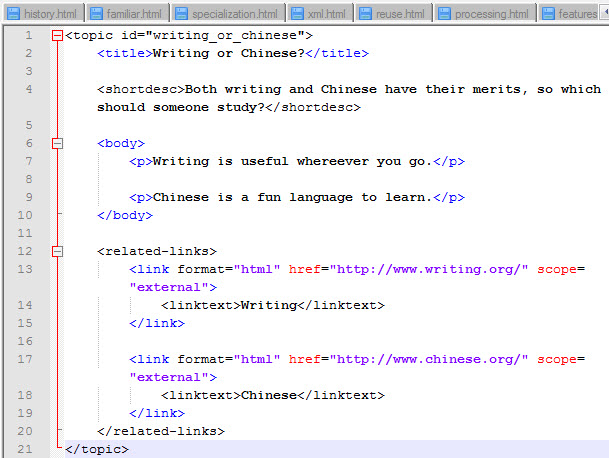Topic Orientation
DITA is based on topics. In other words, instead of creating entire documents, you would create topics focusing on one subject per topic. Another name for this is topic-based authoring.
What is a Topic?
A topic is an unit of information describing one task, reference, or concept. Topics usually include a title element, an optional short description or abstract element, a body element, and a related links element. Below is an example of a topic.

What are the Topic Types?
According to DITA 101, DITA provides structures for three types of information: concepts, tasks, and references.
Concepts
Descriptive information created to give context or understanding
Concept Topic Example
Labeled diagram of the parts of a build-it-yourself chair.
Tasks
Procedural information used to give "how to" information.
Tasks Topic Example
Instructions for making bread.
References
Reference information used to provide specific, detailed information or to create quick reference information glanced at daily.
References Topic Example
An employment data chart.
DITA Maps
A DITA map, or topic map, is a hierarchy of topic references. Below is an example of a topic map.

Many of the elements used in DITA are almost identical to those used in HTML. Some of these include the block elements (paragraphs, itemized lists, unordered lists, etc.) as well as some inline elements (italic, bold, teletype, subscript, and superscript). For more detailed information on DITA elements, see the sources on the Resources page.